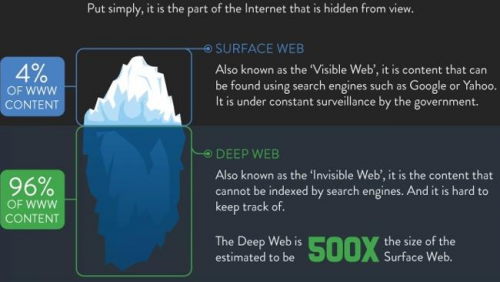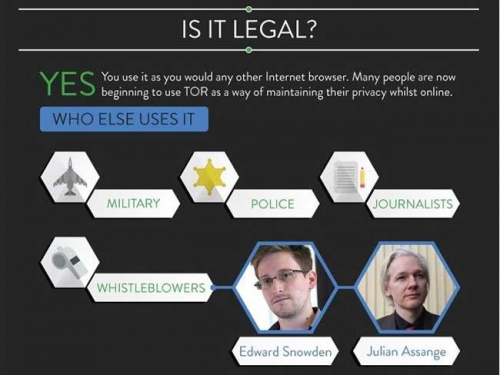Anonymous Browsing, the Deep Web and Tor
While you’re using notorious browsers, such as Firefox, Chrome and Ice Dragon combined with Google, Yahoo or Bing search, you are only accessing a very small fraction of the worldwide Internet. If you think you have access to everything, you are so wrong.
Chrome and Firefox and the likes are the so-called “surface” browsers, which only give you access to as little as 4% of the Internet. The rest of the Internet is hidden from your eyes and is known as the Deep Web.
Both anonymous browsing through Tor and the Deep Web have been around for quite a while now, but these notions have become notorious and known to the large public of general users due to the mainstream shows, such as House of Cards by Netflix.
The Deep Web
The name Deep Web stands for all the websites and data that is inaccessible through a regular browser and a regular search engine from the likes of Google and Yahoo. Overall, the Deep Web constitutes nearly 96% of the Internet content worldwide, and this space is totally anonymous.
So how do you enter the Deep Web and browse anonymously? The answer has been out there for a while, and it’s called Tor. The special breed of anonymous browser is called Tor, or The Onion Router. There are a large number of other browsers that provide different levels of anonymity, but Tor is the most popular. Anonymous browsers can find and access information, which is otherwise unavailable through surface browsers. For example, websites that are not linked to other websites, or websites that require registration to give access to the content, and websites which contain restricted access content.
After Edward Snowden revealed NSA spying documents, general public was consumed by major concerns over growing breaches of Internet privacy and human rights. As a result, regular users, not only technically savvy users, started flocking to Tor network for its ability to allow users surf the web in the best practices of online anonymity.
Is it legal?
If you wonder about the legality of Tor and its usage by regular users, there is nothing to worry about unless you are looking for trouble. It is completely legal to browse anonymously, and using Tor does not have any legal implications for you whatsoever. General public can execute its right to hide their identities when browsing the Internet.
Nevertheless, because Tor and the Deep Web provide total anonymity, this place has become a haven for criminals – shady people from weapons or drug dealers, human trafficking, even contract killers use Tor and the Deep Web to conduct their business.
So, just like everything ingenious, Tor and the Deep Web are simple and can be used for both good and bad, and unfortunately the Deep Web has become a breeding ground for criminal activity. However, it doesn't mean you cannot use it for the regular research and browsing when you want to stay anonymous, or have access to the websites otherwise inaccessible from Google search or Bing. Tor is a great opportunity to research information when you’re looking for unbiased opinions, news channels that are not brainwashed by politics and sources of information that do not generate revenue by propagating misleading information, as we can see in the global mass media worldwide, unfortunately.
The notorious Silk Road case that has been largely advertised on news channels was about the online drugstore that got taken down by the FBI last year when millions of dollars worth of Bitcoins vanished without a trace, and the drugstore creator faced long-term prison time. However, it didn’t take long for another Silk Road to open, which got notably robbed by a justice seeking web wizard.
Speaking of Bitcoin, it is yet another way of anonymizing users’ online payments, and despite its volatile nature, many people have invested in Bitcoin, soaring millions of dollars in revenue.
Tor and the Deep Web offer unprecedented anonymity that no regular surface browser can grant you, so if you want to keep yourself anonymous online or access information that you feel might be hidden from the regular browsers, you absolutely have to sort out how to use Tor, and we going to dwell on it in the next article, so stay tuned to D3k to find out how to use Tor and anonymize your online identity. Also, we welcome your questions and suggestions in the comments below. Let us know what subjects and tutorials in privacy, security and anonymity you would like to have covered in detail.
Infographics by WhoIsHostingthis.


